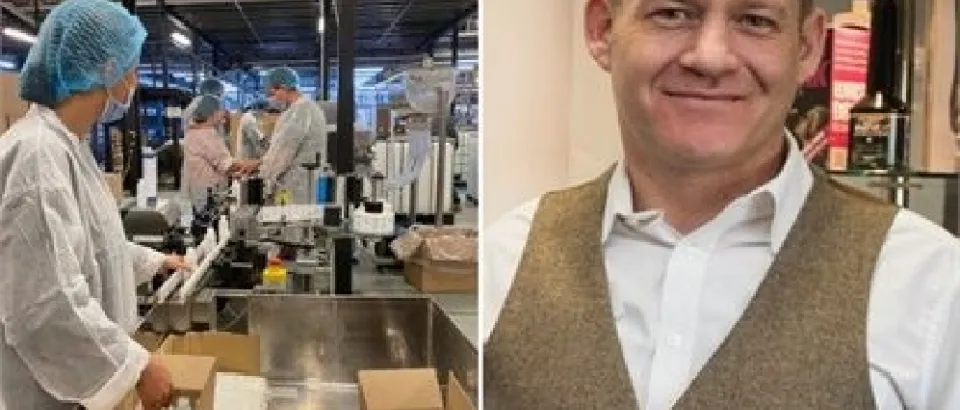
A Treforest business has bounced back from flood devastation by making locally sourced hand sanitiser and producing an emergency supply of 20,000 bottles for local frontline staff.
Introduction to business
Founded in 1968, Gwalia Healthcare is a growing business, specialising in the manufacturing and supply of medical device components and assembly of pharmaceutical and medical grade products.
Led by Managing Director Rod Parker, the business offers bespoke contract manufacturing and packaging solutions for global, mid-tier and emerging life sciences companies.
What challenges did you face during the Coronavirus outbreak?
The first challenge we faced was recovering from the devastating effects of the February floods. Storm Dennis completely wiped out our specialist equipment as well as our clean room facility, and brought Gwalia’s whole operation to a halt overnight.
In the weeks after the floods, I was determined to work 24/7 and ensure the medical supply chain was uninterrupted. We invested time and resource clearing, cleaning and sourcing new machinery. We managed to re-establish 30% of our manufacturing capability and satisfy 85% of our orders.
However, this is when a new emergency happened – the Covid-19 pandemic. With slim chances of survival, even with the HMRC’s furlough scheme, I knew I had to grab the opportunity and repurpose the business operations with the skillset we had in-house to support the community and Welsh Government.
We weren’t making hand sanitiser or gel before Covid-19, but we thought, as a large number of our industrial customers wouldn’t need their orders from us, why not focus on producing hand sanitiser ourselves?
We could already make the empty bottles and source the gel and alcohol within a 10-mile radius. We had a call from the Council, which needed as much hand sanitiser as we could make for its staff – and we produced 12,000 bottles in that first week as an emergency. That was without a filling line, nor did we have a squeezing dispensing pack for the product.
What measures have you implemented to tackle the pandemic?
We’ve since established a filling line and continue to have lots of enquiries from UK public bodies. We do all of the process in house – from manufacturing the product, caps and bottles, to filling and packaging, which gives us an advantage over our competitors.
The product travels about 15 metres from one machine to another, so there is no external packaging or storage either. As a result, the product has a very low carbon footprint.
We are in the process of investing £500,000 into our production capability, which can supply up to one million bottles of certified gel per week – and this has been the catalyst for creating 13 new jobs, with more to come.
How has the Welsh Government’s Business Wales service helped?
Business Wales Relationship Manager David Fisher has been supporting the growth and recovery of Gwalia Healthcare by exploring and advising on various paths to development. Following advice on a 2-phased approach to innovation, Gwalia was able to move into the production stage, employing a further 11 members of staff as a direct result of the intervention.
Rod was also successful in securing £2,500 from the Business Wales Flood Relief grant, which helped them cover expenses and bills after the floods.
Your advice to other business owners during the crisis
I would advise any business owner to grasp the opportunities they are presented with in these challenging times. Adapt and diversify into new products and new markets with your eye on the long-term benefits.
Regardless of your difficult financial situation, make sure you remain an ethical company – this will help with customer loyalty and retention after the crisis, and would help you stay competitive and tackle other uncertainties such as Brexit.
Don’t forget to make some noise, too – clients won’t find your business unless you shout out about it!
If you want to read more success stories of how Business Wales has helped other people like you to start or grow their businesses, visit https://businesswales.gov.wales/case-studies or follow @_businesswales / @_busnescymru on Twitter.
